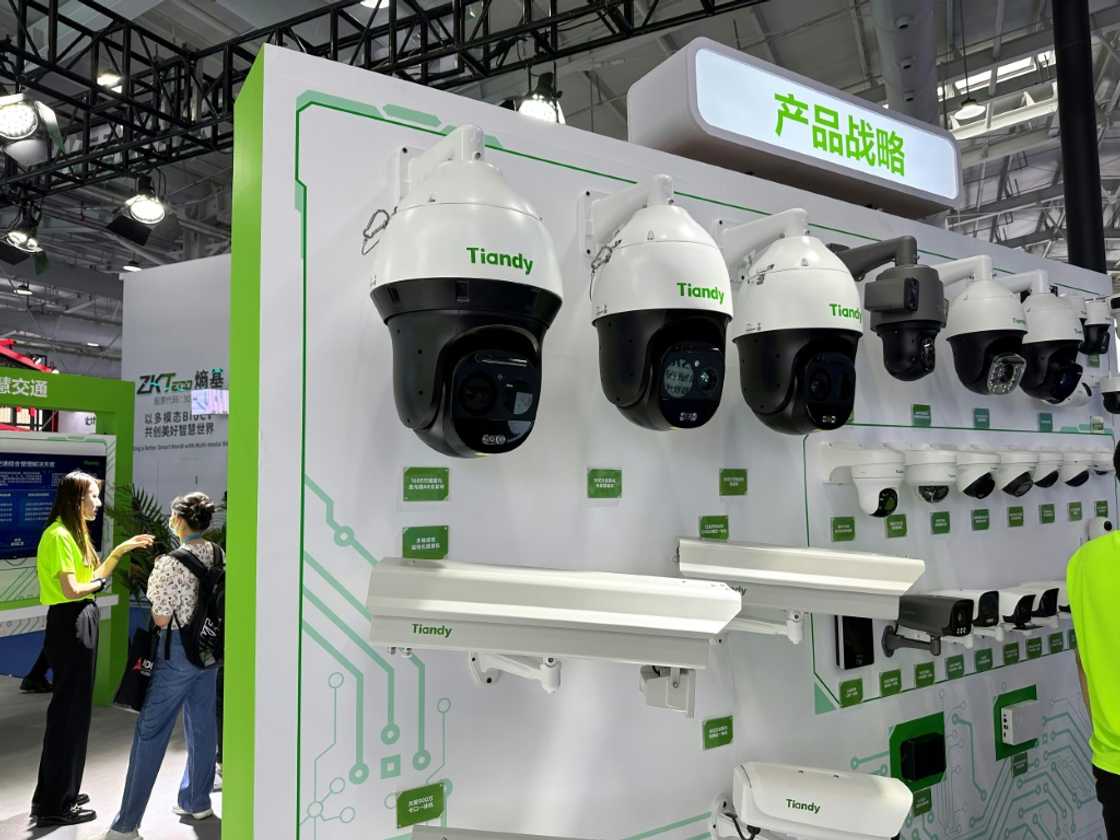AI, facial recognition tech front and centre at China security expo

Source: AFP
AI tech that spots "undesirable" behaviour and long-distance facial recognition software were on show Thursday at a Beijing expo attended by hundreds of companies -- many blacklisted by the United States for their alleged role in repression in China and abroad.
The three-day Security China event bills itself as a showcase of the future of high-tech policing and is backed by Beijing's commerce ministry and law enforcement bodies.
On Thursday the venue was packed with employees from across China's security industry and prospective clients, including some foreign customers, as well as curious members of the public.
China is one of the most surveilled societies on Earth, with countless CCTV cameras scattered across cities and facial recognition technology widely used in both day-to-day law enforcement and political repression.
At one booth operated by AI software company SenseTime, sales representatives showed off smart cameras that can be set to recognise certain "undesirable" behaviours -- including smoking, physical fights, and not wearing a mask.
Other cameras designed for installation at doorways and checkpoints have the ability to identify attempts to impersonate someone to gain access, such as by holding up a picture or wearing a mask resembling another person.
PAY ATTENTION: Сheck out news that is picked exactly for YOU ➡️ click on “Recommended for you” and enjoy!
In one demonstration, an eerily-lifelike mannequin was placed in front of the camera -- only for the program to flag that it was not human.
These surveillance systems can also be programmed to watch for fires and alert emergency response personnel.
Hong Kong-listed SenseTime was placed on a US trade blacklist in 2019, accused of being an arm of China's "military-industrial complex" over the use of its technology in mass surveillance in the western region of Xinjiang.
An estimated one million Uyghurs and other Muslim minorities have been detained in the region since 2017 under a government campaign that Washington and rights groups have called a genocide.
Another firm, Zohetec, boasted technology with the ability to recognise faces from a distance of 150 metres (490 feet).
Representatives from Tiandy -- a Chinese firm also allegedly linked to repression in Xinjiang -- showed AFP some of the company's "smart city" products.
These included cameras that can obtain details about cars such as licence plate numbers and drivers' faces from a long distance, even at night.
Tiandy's equipment is used for traffic control by authorities in Beijing and nearby Tianjin, where the firm is based, its staff said.
Another smart city function developed by Tiandy involves identifying pedestrians that break road crossing rules. It posts their picture on a display to "embarrass" the individual and discourage them from reoffending.
"This kind of tool can be quite effective," a sales staffer told AFP.
Of the relatively small number of foreign customers attending the expo, most hailed from Russia and the Middle East, they said.
Also at the event was Chinese state-owned surveillance giant Hikvision, which is blacklisted in the United States for allegedly helping Beijing carry out a "campaign of repression".
New feature: Сheck out news that is picked for YOU ➡️ click on “Recommended for you” and enjoy!
Source: AFP



